Les Bleus have made the Euro 2024 quarter-finals but not one player has yet scored from open play, making changes essential against Portugal
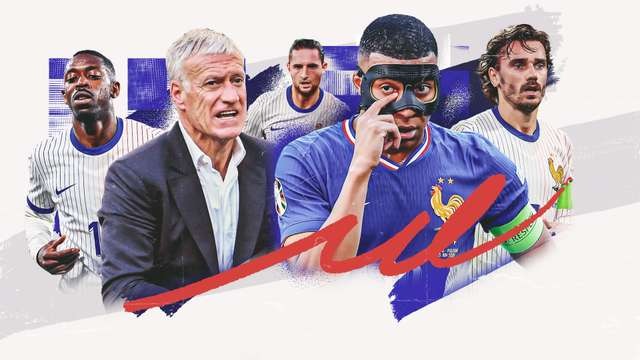
After France had fluked their way into the quarter-finals of the Euro 2024 with a dreadfully dull 1-0 win over Belgium, William Saliba argued that Les Bleus “deserve some credit” for the way they play. They’re not going to get any, though – not if they continue sending supporters to sleep with their boring brand of football.
There may be plenty to admire about the way in which Saliba & Co. contain opponents – they’ve kept more clean sheets than any other team in the tournament thus far – but the media’s attention remains firmly fixed on France’s malfunctioning forward line. And rightly so.
Didier Deschamps has a wonderful array of attacking talent and yet his team have scored only three goals in Germany – two own goals and a penalty. It’s a shocking statistic, utterly embarrassing in fact. Deschamps doesn’t care, though. He never has.
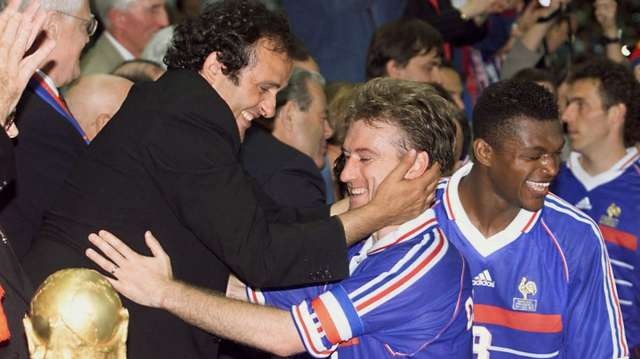
Water-carrying winning machine
As a player, Deschamps was derided by Eric Cantona for his lack of creativity and flair but the “water-carrier” won it all, with Marseille, Juventus and France. This was a character who fully embraced and eventually came to epitomise the (in)famous Bianconeri ethos that “winning isn’t important, it’s the only thing that counts.” It’s not in the least bit surprising, then, that he’s proven the most conservative of coaches.
“At the highest level, if you don’t have a solid defensive base, you can’t get by,” he once said. “In one match, yes. But over a whole competition? No.”
It was a comment that evoked memories of the old Sir Alex Ferguson line that “Attack wins you games, defence wins you titles” – but the stubborn Scot was never as negative as Deschamps.
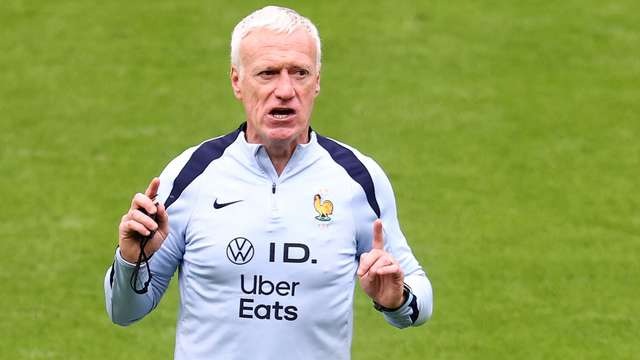
‘Repeat, repeat, repeat’
Deschamps has argued, with some degree of justification, that pragmatism is imperative in international football. “It’s hard to evolve when you only have 15 days or three weeks to practice and correct and change tactics,” he pointed out six years ago. “The players are smart, but they play a particular way with their clubs. The Real Madrid coach won’t ask for the same things as the Paris Saint-Germain coach or the Chelsea coach. So, you need to find a tactical plan that works for all of them. For me, the goal is to make the most of each player, and then repeat, repeat, repeat.”
The problem is, though, that doing the same thing over and over again may create the “good habits” Deschamps hailed after the Belgium game, but it also runs the risk of making a team painfully predictable. Indeed, in Germany, France are playing without any imagination, which is perhaps the inevitable consequence of 12 years of being subjected to such a defensive dogma.
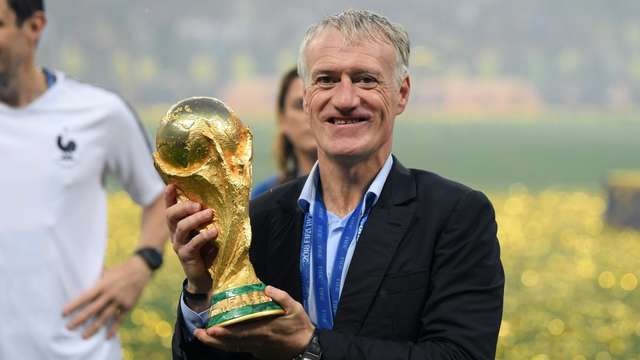
‘Results in Russia proved me right’
It was hoped after winning the 2018 World Cup that Deschamps might let the handbrake off, but his attitude was very much, ‘If it ain’t broke, why fix it?’
“You can win the World Cup in other ways,” Deschamps admitted, “But should I change just to please my critics? The results in Russia proved me right.”
Deschamps is just as convinced he’ll be vindicated at the Euros, too. In fact, he’s already claimed, like Saliba, that France are not getting sufficient praise for their performances in Germany and he was annoyed by the suggestion that the celebrations that followed the 1-0 win over Belgium were excessive.
“I’m immensely proud to be in the quarter-finals,” he told reporters in Dusseldorf on Monday evening. “Even if we are expected to be here, you can’t trivialise [the achievement]. It was a high-level match, very close, and when we win, we are demonstrative. You have to enjoy every moment. We’re not going to get carried away, but we’re in the quarter-finals.”
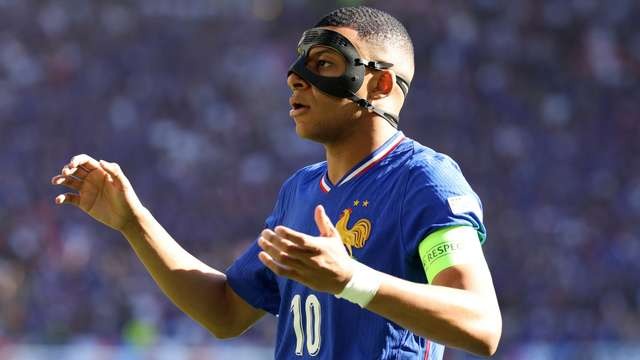
‘I’d like us to create more chances…’
The question is, though, what now? Because France’s no-risk strategy feels unsustainable.
In the history of the European Championship, there have been five instances of teams winning 1-0 thanks to an own goal – Deschamps’ France are responsible for three of those victories, and while he’s always argued that a team needs a bit of good fortune once in a while, their luck is likely to run out eventually.
Deschamps defended the “waiting game” his side played against a Belgium team he rather amusingly labelled “cautious” without an apparent trace of irony, but he also acknowledged, “you can’t win through possession alone. I’d like us to create more chances.”
Playing a more offensive line-up against France would be one way to achieve that objective.

Finally time for Giroud?
With Adrien Rabiot suspended for the quarter-final showdown with Portugal in Hamburg, Antoine Griezmann should revert to his hybrid role in midfield, as his attributes were wasted on the right wing against Belgium. It also feels like high time that Olivier Giroud was given a start in Germany, having been utilised solely as a sub in the group stage before being left on the bench for the entirety of the Belgium game.
Deschamps has tried everything to bring the best out of Kylian Mbappe – bar lining him up alongside the one orthodox No.9 in the French squad that the Bleus boss knows that the winger absolutely adores playing off. Giroud may no longer be particularly mobile, but he would make for an excellent reference point for France up front. It’s also fair to argue that he would do a lot better than the terribly profligate Marcus Thuram with the brilliant crosses Jules Kounde & Co. are swinging into the area
What seems far more likely, though, is that Deschamps will err on the side of caution against an underperforming but dangerous Portugal side. Expect him to bring either Youssouf Fofana or Eduardo Camavinga into the midfield in place of Rabiot – rather than the far more exciting and progressive Warren Zaire-Emery, who has yet to see a single minute of action at the Euros.
Consequently, we could once again see Griezmann out of position on the right wing – or simply relegated to the bench, with the maddeningly inconsistent Ousmane Dembele recalled out wide ahead of Bradley Barcola, who combined fantastically well with Mbappe against Poland, and Randal Kolo Muani coming in for Thuram.
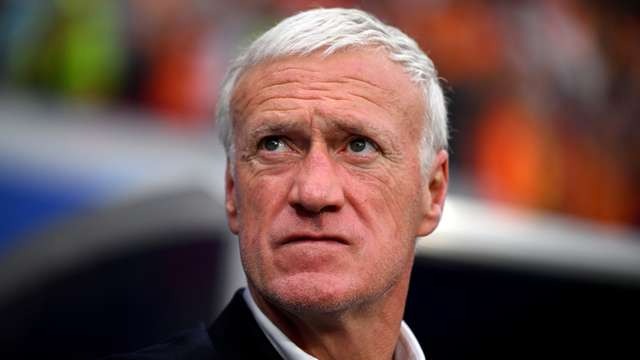
‘We could change it up, but it’s risky’
The bottom line, though, is that no matter what Deschamps decides, we can expect more of the same from France. The personnel might change, maybe even the formation too, but the safety-first philosophy will not.
The calls for a more positive approach go back years now, but Deschamps has already remained defiant. “We could change it up,” he said after the 2018 World Cup, “but it’s risky.” And Deschamps doesn’t do “risky”; he does repetition, which is tough to watch but even harder to beat.
Part of that is down to the fact that the players remain fully committed to their coach and his methods. There have been no murmurings of dressing-room discontent, no evidence of frustration with the game-plan.
Griezmann, for example, says he has no issue being asked to perform a role to which he is utterly unsuited, and even did a passable Deschamps impression while justifying France’s tactics against Belgium. “Without a great defence,” the attacker told beIN Sports, “you can’t go far.” Rabiot, meanwhile, says the players would be “fine” with continuing to play as they are if it leads to them lifting the trophy in Berlin on Sunday week. “It only takes one goal to win,” the midfielder told RMC Sport.
As for Saliba, he is clearly more frustrated with having to defend Deschamps, than follow his instructions. “We are such a strong team, a compact and solid block,” he told ESPN. “People don’t realise how difficult it is to play against us, how hard we make it for the opposition.”
They’re quite hard to watch too, though. That’s the sad thing. France could be wonderful exponents of ‘The Beautiful Game’ but their coach is content to eke out ugly wins because, at the end of the day, Deschamps really doesn’t care about credit; he just wants to win.
In his eyes, the end always justifies the means – even if that means leaving everyone else at their wit’s end.
